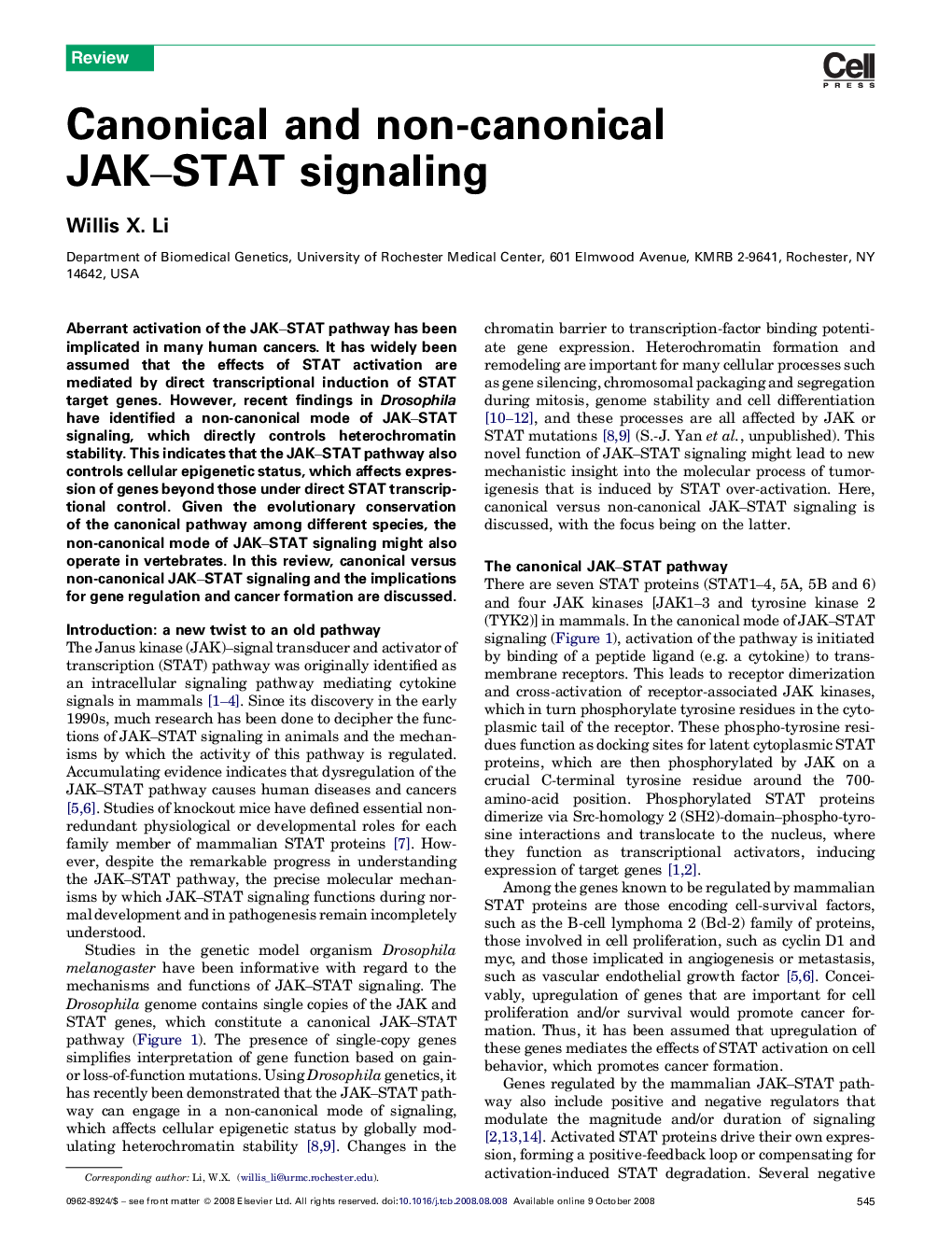| Article ID | Journal | Published Year | Pages | File Type |
|---|---|---|---|---|
| 2205144 | Trends in Cell Biology | 2008 | 7 Pages |
Aberrant activation of the JAK–STAT pathway has been implicated in many human cancers. It has widely been assumed that the effects of STAT activation are mediated by direct transcriptional induction of STAT target genes. However, recent findings in Drosophila have identified a non-canonical mode of JAK–STAT signaling, which directly controls heterochromatin stability. This indicates that the JAK–STAT pathway also controls cellular epigenetic status, which affects expression of genes beyond those under direct STAT transcriptional control. Given the evolutionary conservation of the canonical pathway among different species, the non-canonical mode of JAK–STAT signaling might also operate in vertebrates. In this review, canonical versus non-canonical JAK–STAT signaling and the implications for gene regulation and cancer formation are discussed.
